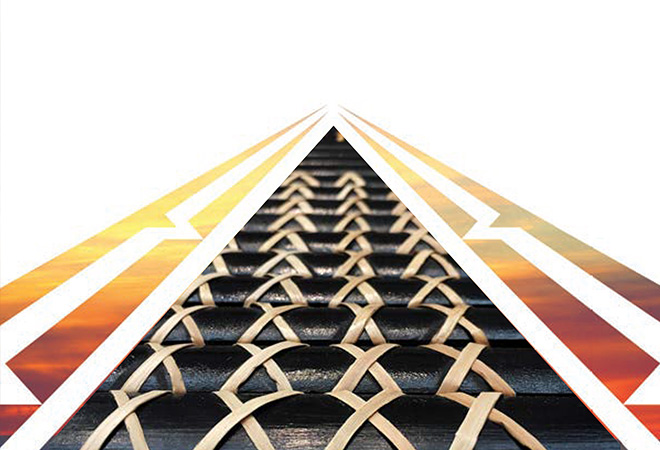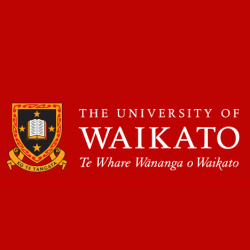
Te tātua o kahukura
Status
Completed: 7 November 2018
Project Details
A two-year project to learn more about the capacity building and career development needs of Māori doctoral students in their early careers. A collaboration between University of Waikato, Ngā Pae o te Māramatanga and Ako Aotearoa.
Aims:
The project aims to:
- identify the capacity building and learning needs of Māori scholars early in their careers
- document effective practices that support the capacity building and learning needs of Māori scholars early in their careers
- undertake workshops with Māori scholars and staff to pilot career pathway planning, gather feedback and refine research findings
- publish a research report and resources for supervisors, research teams and the broader tertiary education institution community.
Methodology:
The project will use a kaupapa Māori methodology and include:
- interviews
- hui, workshops
- pilot career pathway development
- literature review
- the use of thematic analysis
- a Māori storytelling process for participants.
Team

Associate Professor Leonie Pihama
Principal Investigator
Te Kōtahi Institute, University of Waikato
Dr Sarah-Jane Tiakiwai
Co-Investigator/Researcher, Facilitator
University of Waikato
Associate Professor Jenny Lee-Morgan
Workshop Leader and Facilitator
The University of Waikato
Professor Linda Smith
The University of Waikato
Herearoha Skipper
Project Manager
The University of Waikato
Rangimarie Mahuika
Research Officer
The University of WaikatoStatus
Funding
$351,543.00 (excl GST)
Key Findings
Key Recommendations
Ways supervisors can support Māori & Indigenous PhD scholars.
Capacity Building
- Supervisors need to be sensitive, aware, prepared for and supportive of any and all cultural matters that may arise throughout the research project, particularly if the supervision team is non-Indigenous.
- MAI doctoral scholars require more support from supervisors and institutions to develop their writing abilities, and gain knowledge about the range of journals (in which to publish), relevant conferences, book proposals, funding, promotions, and university committees, to increase and access wider professional development and growth. Māori and Indigenous doctoral and early career academics also require safe spaces to build their confidence and develop experience.
Hui
- Regular meetings and activities which have time for whakawhanaungatanga deliberately built in to enable the slow but steady development of supervisory relationships is critical.
- Hui which engage on an iwi level are important. Opportunities where scholars can exchange and network with iwi/hapū leaders and/or scholars is highly desired and is key to generating post-doctoral pathways which enable MAI doctoral scholars to work with or for their people.
Mentorship and beyond
- Sponsorship as an approach to supporting doctoral scholars that moves beyond mentorship is highly desired by MAI doctoral scholars. Described as an action-based process catalysing upward career mobility (whereas mentoring is credited with preparing people to move up). Sponsorship may include mentoring, coaching, protection, exposure, or an assignment of challenging work.
- Sponsorship that is based in cultural frameworks such as tuakana teina is highly desired from supervisors. This requires active capacity building and the provision of opportunities which continues throughout the PhD and for at least 12 months after graduation.
Pathway Planning
- Provide opportunities for MAI doctoral scholars to engage in active planning of their post-doctoral pathways.
- Mentorship or sponsorship that is sourced from within whānau, hapū or iwi contexts should be supported by supervisors and institutions as being integral to creating and sustaining pathways for MAI doctoral scholars that go beyond the PhD.
Whanaungatanga
- Many MAI doctoral scholars experience feelings of cultural and social isolation in academic institutions. Supervisors should advocate for more opportunities where scholars can socialise and interact with other Māori and Indigenous doctoral candidates or staff.
- Advocating for physical space within the academy that is dedicated solely for MAI doctoral scholars is central to enabling scholars to gather and support each other. Creating and filling space, with our ways of knowing and being, is also essential to the systemic, institutional and societal changes Māori and Indigenous peoples seek.
The final report of the Te Tātua o Kahukura project aims to understand the capacity building and career development needs of Māori and Indigenous early career scholars, using Kaupapa Māori research methodology and data collected through interviews, hui, and workshops, with a focus on sharing experiences and views to inform support programs in the tertiary sector.
- 7 November 2018
A quick reference guide for supervisors supporting Māori and other indigenous PhD scholars.
- 7 November 2018
A support resource identifying key principles for supporting Māori and indigenous doctoral scholars.
- 7 November 2018